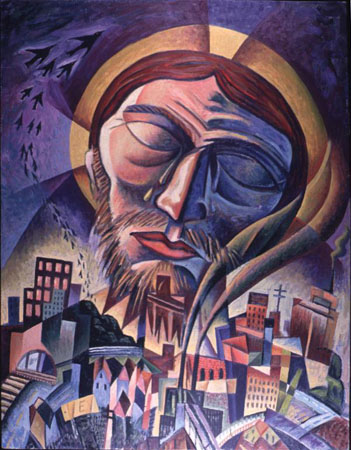Dear City Council members:
I
have been attending meetings of the Safety Committee regarding efforts to make
it illegal for homeless people to sleep in public places and to make it easier
for police to arrest homeless people for “aggressive panhandling.” As
a person of faith, I can’t help
thinking that this week many of us
are honoring the memory
of a homeless man who came to preach good
news to the
poor. Because he was seen as a
threat to those in power, he was arrested by the authorities, tortured and killed.
He had so much compassion for the marginalized that he told his followers, “As you do to the least of
these, my brothers and sisters, you do
for me.”
I have
been involved with the homeless
people for many years and have homeless friends. In fact, two years ago Jill
and I took into our home a man who was living in his car. He was drinking a
lot, and was so sick we were afraid he was going to die. He recovered and has
stayed with us and become a huge asset. He is not only a highly competent
handyman, he also helps us to understand what life is like for homeless people
in our city. If you want to solve the homeless “problem” in our City, I
recommend that you get to know homeless people.
Since
coming to Pasadena five years, I have been involved with the homeless
count. Last year, when I was counting
the homeless, I noticed
half a dozen homeless people
sleeping in front of the
deluxe animal shelter near the Delmar
Station and I asked
myself, What’s wrong with this
picture? We provide humane shelter for stray
animals, but what about people who are homeless?
I am
glad that our
city believes every homeless
person deserves a decent
place to live, and I
commend the efforts of our
Housing Department and many citizens of good will. But until such time as the city provides
a decent shelter
for every homeless person, I believe homeless people should be allowed
to sleep on sidewalks and
public places.
I
can understand why some Pasadenans feel intimidated
by homeless people. Some of them have
disabilities, mental problems, or
substance abuse issues.
Life on the
street is so stressful
it can cause people to act out
in strange and sometimes frightening ways.
Given
these disturbing realities, it
seems to me that we need to look at root causes rather than
symptoms. Why is there an apparent increase of inappropriate behavior by
homeless people? What is causing it? Until we know the cause of a problem, we
can’t come up with solutions
My
Christian faith teaches me that we don’t more
punitive laws, we need
more compassionate practices
that can help homeless people
to behave appropriately and find
the help they need. I’m
glad that the business
community recognizes the need
for homeless services and
housing.
When
we ask police to deal with homeless people, we
need to insure that
they have training and
mentoring from mental
health professionals so they can
learn how to
treat homeless people
appropriately. This is a very challenging task.
Last
year a youtube video went viral showing
how four Swedish police officers vacationing
in New York City helped to calm down two homeless black
men who were fighting
in the subway.
The behavior of these two men was very
aggressive and scary, but these Swedish police didn’t threaten him. “Take it easy, just relax, everything is going to be okay,” one of the
officers told the detained man while he frantically screamed that he couldn’t
breathe. This seemed to calm him, and the officer asked if he was injured with
a kind and gentle hand on his back. The officer seemed genuinely concerned
about his well being. By showing
concern for this homeless
man’s welfare, the police were able to calm him down. This
is the kind of policing we need here in Pasadena and throughout the USA. See Swedish police in NYC subway
When
business people and property owners complain about the homeless, it is
politically expedient to call in the cops.
But I wonder what good will
it do to fine or incarcerate people who have no money and nowhere to
live. If you fine them, they have no funds so they will have to resort
to more aggressive panhandling to pay their fines.
If you jail
them, they return to the
streets even more traumatized and
more likely to act out. These
punitive measures are
not only counterproductive, they are expensive.
LA spends $88 million out of
its $100 million homeless budget on enforcement,
with little good to
show for it. Does Pasadena want to follow LA’s
bad example?
Instead
of targeting homeless people
with punitive laws that don’t work,
we should follow the example of
Rhode Island, which passed a homeless bill of rights. A similar law is
being considered in California. Even without such a bill of rights, we
should recognize that homeless
people have rights, just
like property owners. One basic right is
housing. If we house the homeless, and give them wrap-around
services, most problems would disappear.
Studies show these measures even
save money. So let’s be compassionate
and wise, and use our resources
to house, not punish, homeless people. As we do for the least of these, our brothers and sisters, we also do for the one who bestowed on us all the blessings we enjoy.







